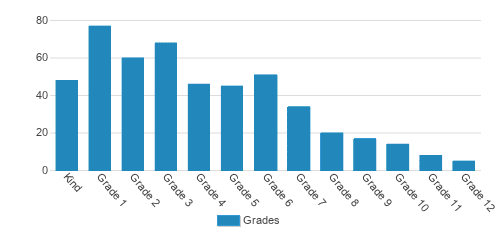Japanese Educational Institute serves 493 students in grades Kindergarten-12. The student:teacher of Japanese Educational Institute is 11:1 and the school's religious affiliation is Nonsectarian.
Quick Stats (2025)
- Top Ranked TX School
- School Type: Alternative School
- Grades: Kindergarten-12
- Enrollment: 493 students
- Yearly Tuition: $1,800
- Average class size: 18 students
- Application Deadline: None / Rolling
- Source: Verified school update
Top Rankings
Japanese Educational Institute ranks among the top 20% of private schools in Texas for:
Category
Attribute
Affordability
Student Body
School Overview
School Type
Religious Affiliation
Grades Offered
Grades Kindergarten-12
Year Founded
1972
Student Body
Total Students
493 students
Student Body Type
Co-ed
% Students of Color
100%
State avg.: 41%
Students by Grade

Academics and Faculty
Total Classroom Teachers
46 teachers
Student : Teacher Ratio
11:1
National avg.: 13:1
Average Class Size
18 students
Classroom Dress Code
Casual
Tuition and Acceptance Rate
Admission Deadline
None / Rolling
Yearly Tuition Cost
Tuition Notes
Tuition $ 1800-$2000 plus supplementary books fee
School Notes
- Must speak in Japanese fluently before entering our school. Interview is in Japanese only.
Source: Verified school update
Frequently Asked Questions
How much does Japanese Educational Institute cost?
Japanese Educational Institute's tuition is approximately $1,800 for private students.
What is Japanese Educational Institute's ranking?
Japanese Educational Institute ranks among the top 20% of private schools in Texas for: Least expensive tuition, Highest percentage of students of color and Largest student body.
When is the application deadline for Japanese Educational Institute?
The application deadline for Japanese Educational Institute is rolling (applications are reviewed as they are received year-round).
In what neighborhood is Japanese Educational Institute located?
Japanese Educational Institute is located in the Westside neighborhood of Houston, TX. There are 25 other private schools located in Westside.
School Reviews
Endorse Japanese Educational Institute. Endorsements should be a few sentences in length. Please include any comments on:
- Quality of academic programs, teachers, and facilities
- Availability of music, art, sports and other extracurricular activities
- Academic or athletic awards
Recent Articles

A Parent's Guide To Understanding High School Teaching Methods
This comprehensive guide helps parents navigate the various teaching methods used in today's high school classrooms. By understanding these approaches, you'll be better equipped to support your teen's learning journey, communicate effectively with teachers, and create a complementary learning environment at home.

February 08, 2025
Social Emotional Learning: Education's Hidden SymphonyA musician's perspective on Social Emotional Learning reveals how this educational framework orchestrates success through five essential emotional competencies.

January 24, 2025
A Roadmap For Starting A Private SchoolUse this roadmap as a set of talking points with your trusted mentors and professionals to start the private school of your dreams. You're not alone. Over the years, hundreds of folks like you have had the same dream. From Quintilian to Maria Montessori to Lucy Madeira Wing, visionary educators have established schools to teach according to their beliefs and methodologies.















